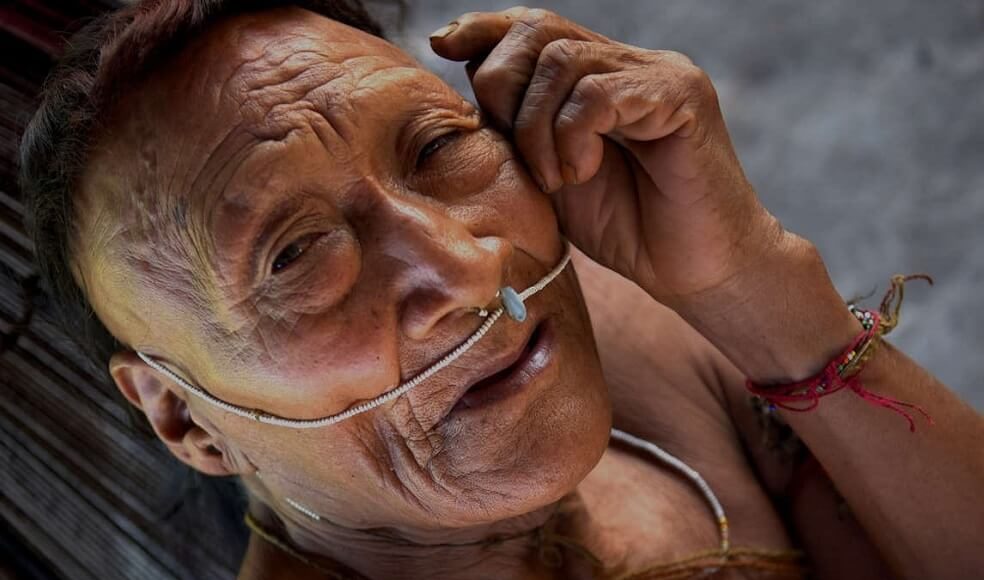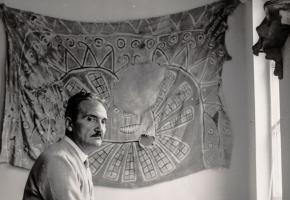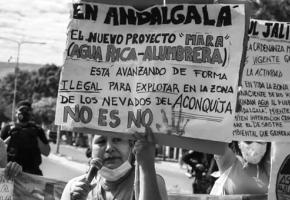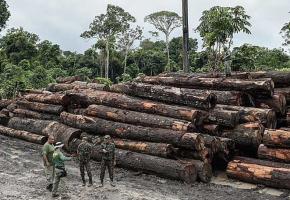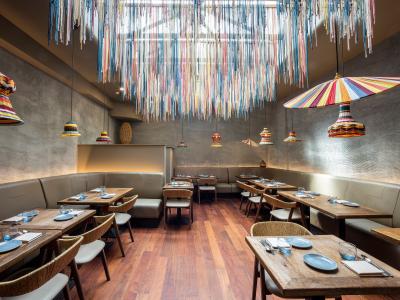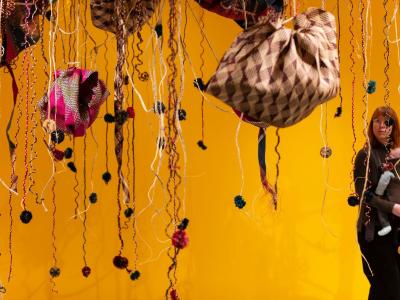As the new coronavirus advances in Latin America, it is the indigenous people who represent almost 10% of the population that are most vulnerable. This is a Latin America where, according to the UN, three out of every ten people living in extreme poverty are indigenous.
More than half of the indigenous people in the world over the age of 35 suffer from diabetes. Rates of infant mortality, malnutrition, cardiovascular and respiratory diseases are also high. Several international media outlets, such as The Guardian, warn that “if the virus enters into the different indigenous communities, the consequence will be total devastation.”
For Survival International, the global organization protecting indigenous peoples, the problem is preexisting. ‘Indigenous people who control their own land are healthier and enjoy a better quality of life than those who have been expelled from their lands and those who have had “development” imposed’, explains Fiore Longo, the director of the Survival office in Paris and Madrid. Its report 'Progress Can Kill' insists that Indigenous peoples must not have ‘progress’ imposed on them by preventing them from continuing their own way of life; and that they have access to health systems that are carefully designed by and for them. When indigenous people are expelled from their land and when their resources are stolen, many indigenous people end up living in poor villages in the cities, marginalised and impoverished. Their health and well-being plummet. They suffer from deadly diseases hitherto unknown to them. Epidemics such as depression, addiction and suicide skyrocket. This is especially true for groups that were previously nomadic and who had little or no contact with the majority society, as is the case of the Nukak people in Colombia.
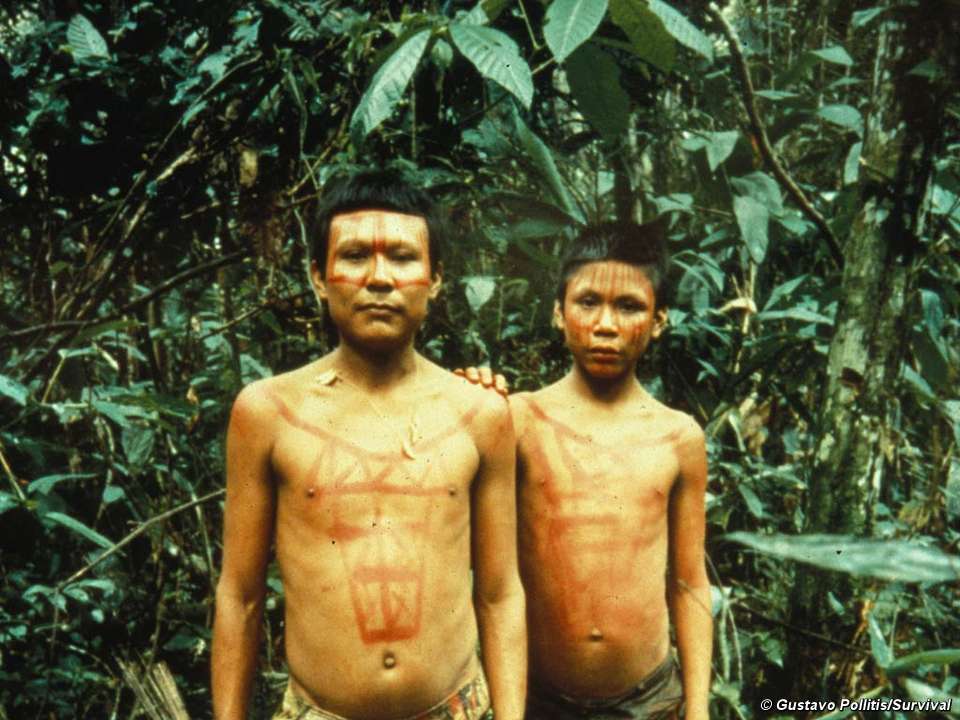
For Alex Villca, from the National Coordination in Defence of Indigenous Rural Territories and Protected Areas (CONTIOCAP), in Bolivia, indigenous people are not only vulnerable to coronavirus but to what will follow afterwards: ‘there will be a large gap in the global economy and, therefore, this could be an excuse to further attack nature, indigenous territories and protected natural areas where these communities are based.’
The problem is not just the pandemic and its consequences; it is also what is happening while we all our attention is focused on the pandemic’s progress. The media’s attention is distracted towards this one subject, the murder of social leaders, several of them indigenous, continues even less reported than normal.Since the quarantine began in Colombia, three social leaders have been assassinated.
Action and Inaction
In Brazil, a 15-year-old member of a remote Amazon tribe in Brazil has died after contracting coronavirus. Alvanei Xirixan died in intensive care in the main hospital of Boa Vista, capital of Roraima state, where he was being treated for COVID-19, according to local indigenous health service Dsei. Coronavirus could have a devastating impact on Brazil's 850,000 indigenous people, who are vulnerable to external diseases and do not have quick access to proper medical care, health experts and anthropologists have warned. More than 26,000 Yanomami live on Brazil's border with Venezuela. Four members of the Kokama tribe, close to Colombia and Peru, have also been infected after a doctor who worked with them tested positive for coronavirus.
With no protection from the state, indigenous communities are taking things into their own hands. In Colombia, the indigenous people of Casanare have demanded medical equipment and supplies, the Chocó people have declared themselves in a state of Permanent Assembly, the Arhuaco Shelter in Sierra self-imposed quarantine, as did the Awá people in Ricuarte, Nariño, and in the Valle del Cauca. The Kankuamo people adopted measures to ‘safeguard good living, territorial harmony and the right to health’.
Meanwhile many mining companies are not complying with the mandatory quarantine, and continue as if nothing has changed, complain The National Indigenous Organisation of Colombia (ONIC).
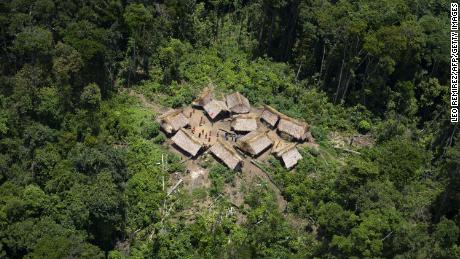
In Peru, the Inter-Ethnic Association for the Development of the Peruvian Jungle (AIDESEP) issued a statement to all the communities in the country, especially to those in the Amazon: ‘even with its heat and sacred plants the Amazon will not be able to stop this tragedy. We call for immediate action to avoid the health ethnocide of more than 500 years of colonisation.’
In Argentina the community of the Wichis "are already struggling to feed themselves, let alone the coronavirus’’ said Rodolfo Franco, a doctor from those communities.
In Bolivia, Alex Villica argues ‘health personnel are not qualified to deal with the situation if the virus increases in the country.’
In Mexico, the Zapatistas have closed their resistance centres and various organisations are distributing information about the virus in indigenous languages, as well as in Ecuador, where the health crisis is increasing exponentially. There, the towns are demanding specific measures from the government, while the Chapeton, Pakayaku, Sarayaku, Molino, Teresa Mama and Montalvo communities are suffering following severe floods.
In Guatemala, where an indigenous person has already died of coronavirus, a doctor, who was selling ‘vaccines’ against this disease to indigenous people in the town of of Chisec has been arrested. In Paraguay, the Ayoreos have reported that the construction of a road did not stop despite the mandatory quarantine and that this is exposing them more than usual.
In Chile, the Mapuches are circulating remedies for the fever and have cancelled ceremonies.
The Uncontacted
In Peru, Colombia, Brazil and Bolivia, thee risks are espeially alarming,particularly in the Amazon basin, where there are already about 80 confirmed cases in the region and according to Robinson López, Coordinator of Indigenous Organisations of the Amazon Basin (COICA). ‘There are 506 indigenous communities at imminent risk, in addition to 76 isolated indigenous communities, whose immune systems are very weak and any type of flu could lead to their extinction. A pandemic of this magnitude for native communities would mean a catastrophe of great proportions,’
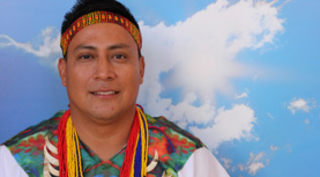 Robinson López, Coica.
Robinson López, Coica.
‘The communities in voluntary isolation are more vulnerable because their immune systems are not capable of defending themselves against any virus, bacteria or disease. Apart from their immunological vulnerability, there is also the sociocultural vulnerability, which involves the lack of and difficulty in accessing health services” explains Jackeline Borjas Torres, a specialist from the Amazon programme of the organisation DAR (Law, Environment and Natural Resources) in Peru.
There, various organisations are asking the Peruvian government for ‘the respect for self-determination.’ ‘If the peak of the epidemic already threatens a state of collapse for the public health system, the consequences for indigenous communities and for people living in voluntary isolation (the Isconahua, Mashco Piro, Murunahua, Nahua, Nanti) may be even more devastating,’ concludedjournalist Nelly Luna in the Washington Post.
In Brazil, the state authorities of the Amazon region declared the situation an emergency, with visits to indigenous reserves prohibited. The Association of Indigenous People of Brazil (APIB) cancelled all its meetings and assemblies but they have not stopped condemning Jair Bolsonaro. The president not only downplays the pandemic but also encourages contact with uncontacted indigenous peoples: he appointed an evangelist missionary as head of the uncontacted indigenous department of FUNAI: he is already raising funds to buy helicopters to ‘reach ten communities of people who live in extreme isolation.’
Paradigm Shift
Quarantines are not just to stop the pandemic; they also offer a chance to think: more and more people are stopping activity and staying at home with time to do this. It is a moment of concern, of course, but also a moment where productive logic has reached an impasse and its consequences quickly become apparent: recession, yes, but less pollution as well. The air is cleaners and even the canals of Venice are crystal clear. The logic of empathy and interdependence is emerging: there are groups of academics in Latin America promoting action in the face of coronavirus to revitalise the community.
The Argentine sociologist Mempo Giardinelli states that ‘beyond the present fear and disorder, the environment is being altered in all orders and on all continents, and consequently the danger to humanity goes much further than illness strains and infections’.
Our way of life and production are at the heart of what is happening. We have to think of ourselves again as part of a whole in which we are not the centre, but one more part. It is valid to fight against COVID-19 but also to go further. ‘The opposite is to surrender to apocalyptic ecstasy, the comfort zone of the new right that offers us one more minute of life at the expense of mutilating ourselves,’” says Alejandro Galliano.
Not only must indigenous people be helped to protect themselves from the advances of the agro-industrial frontier and epidemics such as coronavirus. The paradigm of conservation also needs to change. Thanks to the belief held by indigenous people that we belong to the land and not that it belongs to us, indigenous communities are the best guardians of nature: 80% of the biodiversity that remains on the planet is in their territories. If coronavirus affects indigenous people, it will affect us all.
This article was fisrt published by the Latin America Bureau. For more great articles, visit www.lab.org.uk


